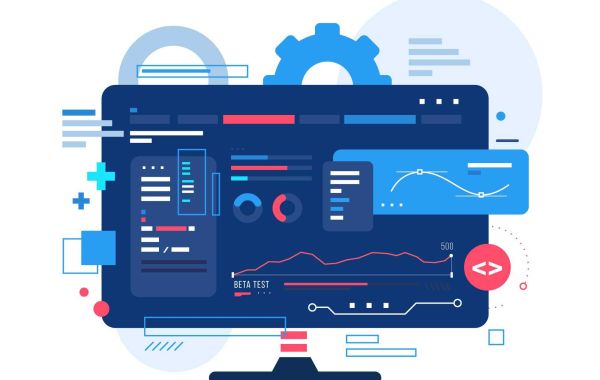Understanding API Development
API development involves creating a set of protocols that allow different software applications to communicate with each other. This communication enables data exchange and functionality sharing between systems, applications, and platforms. In e-commerce and fintech, APIs serve as the backbone for integrating various services, such as payment processing, inventory management, customer relationship management (CRM), and analytics tools.
Enhancing E-Commerce with API Development
1. Seamless Payment Processing
One of the most significant contributions of API development to e-commerce is the ability to facilitate seamless payment processing. APIs enable online retailers to integrate multiple payment gateways into their platforms, allowing customers to choose their preferred payment method, whether it's credit cards, digital wallets, or cryptocurrency. This flexibility enhances the customer experience and can lead to higher conversion rates.
2. Improved Inventory Management
APIs allow e-commerce businesses to connect their online stores with inventory management systems in real-time. This integration ensures that product availability is accurately reflected on the website, reducing the risk of overselling or stockouts. With API-driven inventory management, businesses can automate reordering processes and optimize stock levels, improving operational efficiency.
3. Personalized Customer Experiences
Through API development, e-commerce companies can leverage data from various sources to create personalized shopping experiences. By integrating APIs from social media platforms, CRMs, and analytics tools, businesses can gain insights into customer behavior and preferences. This data can be used to tailor marketing efforts, recommend products, and enhance customer engagement, leading to increased loyalty and sales.
Transforming Fintech with API Development
1. Accelerating Financial Services Integration
In the fintech industry, API development is driving the integration of various financial services, allowing companies to offer a wider range of products and services. For instance, banks can integrate APIs that enable customers to access third-party applications for budgeting, investment tracking, or financial planning. This interoperability fosters innovation and creates a more customer-centric financial ecosystem.
2. Enhancing Security and Compliance
APIs play a crucial role in improving security and compliance within fintech applications. By using APIs, companies can implement robust authentication and authorization mechanisms, ensuring that sensitive financial data is protected. Additionally, APIs can facilitate compliance with regulatory requirements by automating data reporting and monitoring processes, thereby reducing the burden on financial institutions.
3. Expanding Access to Financial Services
API development is instrumental in expanding access to financial services, particularly for underserved populations. By connecting with alternative lending platforms, mobile payment systems, and digital wallets, fintech companies can offer financial products to a broader audience. This inclusivity promotes financial literacy and empowers individuals to manage their finances more effectively.
The Future of E-Commerce and Fintech
As API development continues to evolve, its impact on e-commerce and fintech will only deepen. The trend toward open banking, where financial institutions allow third-party developers to build applications and services around their data, is a prime example of how APIs are reshaping the future. In e-commerce, the integration of artificial intelligence (AI) and machine learning (ML) through APIs will further enhance personalization and customer insights.
1. The Rise of Marketplaces
The rise of marketplaces is another trend driven by API development. Companies are increasingly creating platforms that connect buyers and sellers, often through APIs that facilitate product listings, reviews, and transactions. This model allows businesses to expand their reach without investing heavily in infrastructure.
2. Increased Focus on User Experience
Both e-commerce and fintech sectors are prioritizing user experience. APIs will enable companies to build more intuitive and responsive applications that cater to the needs of their customers. From chatbots that provide instant support to mobile apps that offer a seamless shopping or banking experience, the potential for improved user engagement is vast.
Conclusion
API development is a cornerstone of innovation in both e-commerce and fintech. By enabling seamless integrations, enhancing user experiences, and fostering new business models, APIs are shaping the future of these industries. As businesses continue to embrace digital transformation, the role of API development will be pivotal in driving growth and delivering value to customers. Embracing this technology is not just a trend; it's a necessity for companies looking to thrive in a competitive landscape.








